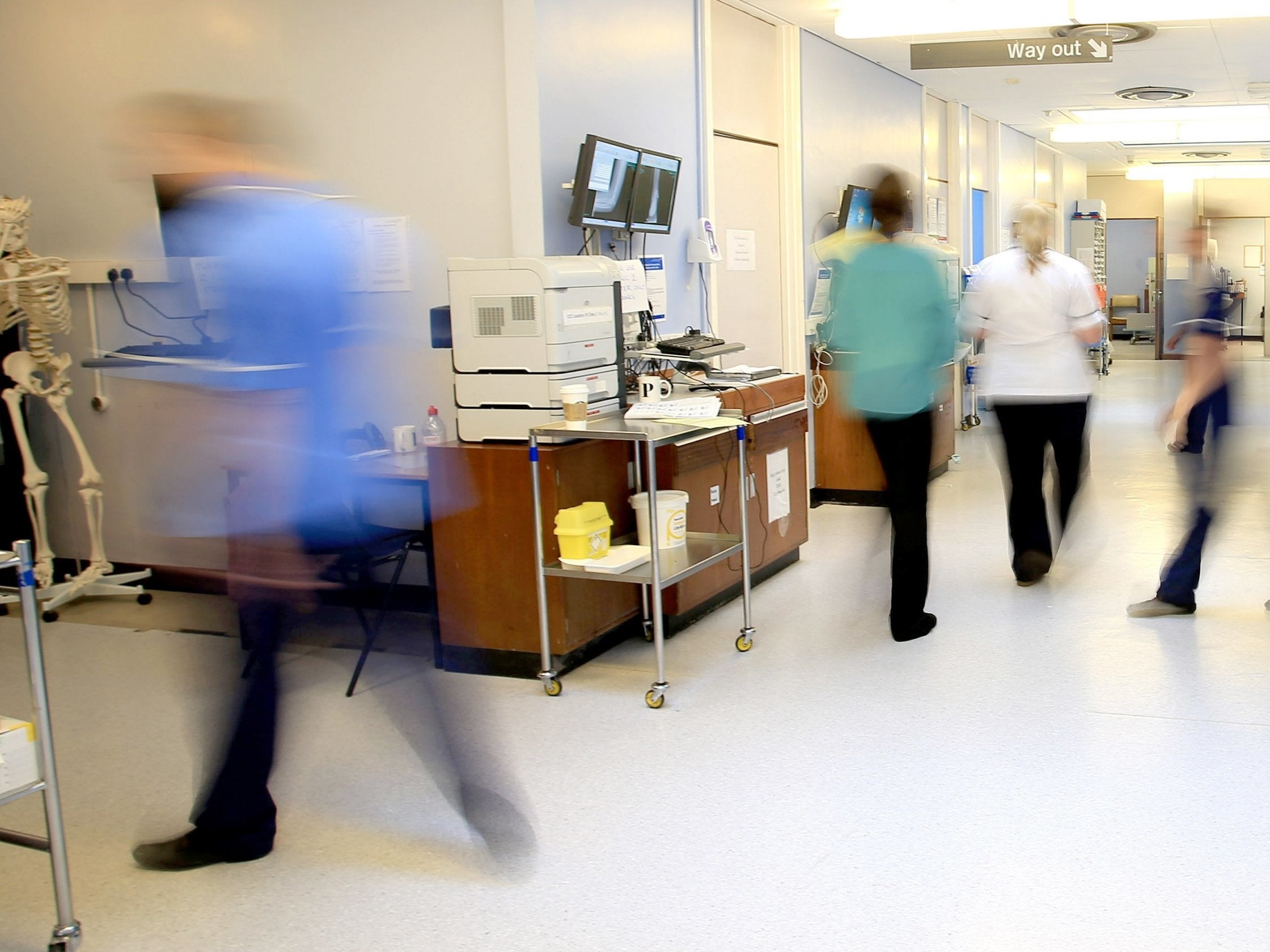UK heatwave: Intervene to protect patients in overheated hospitals, Labour urges government
Exclusive: Severe hot weather 'putting considerable extra strain on hospitals with wards overfull and staff struggling to cope'

Labour has called on ministers to intervene urgently to keep patients safe during the heatwave amid stark warnings over extreme temperatures on the wards.
Nurses have reported that vulnerable patients and relatives are passing out and vomiting in overheated hospitals, where temperatures have soared beyond 30C as the country experiences record-breaking weather.
Shadow health secretary Jonathan Ashworth urged the government to draw up an NHS summer action plan, in the face of growing evidence the severe hot weather is “putting considerable extra strain on hospitals ... with wards overfull and staff struggling to cope”.
Older people, young children and patients with long-term conditions such as heart and lung diseases are particularly vulnerable to the effects of hot weather, doctors have warned.
Union leaders said staff were struggling in the face of increased demand from the extreme heat amid challenging working conditions, as some hospitals were designed without air conditioning, while others refuse to allow nurses to bring water bottles onto the wards.
In a letter to Matt Hancock, the health secretary, Mr Ashworth said: “It is clear that the traditional lull in NHS activity during the quieter summer months is a thing of the past.
“Hospitals now face year-round pressures and the summer strain on NHS services has become increasingly severe for patients and staff alike.
“With more hot weather on the way it is time for the government to step in to help with an NHS summer action plan to keep patients safe.”
He urged the government to spell out what extra resources are being given to hospitals to cope and whether patients will be able to access routine services without disruption in the coming weeks.
It comes as the Royal College of Nursing (RCN) said frontline staff were enduring dangerous conditions by working long shifts in hot weather, which also created risks for patient safety.
Anna Crossley, RCN professional lead for acute, emergency and critical care, said: “Nursing staff should not be expected to work 12 hours shifts in stifling heat with no access to water. Not only is this extremely uncomfortable, it is dangerous, both for them and the patients they care for.
“Dehydration in overheated hospitals is a health risk and can lead to serious conditions – including urinary tract infections and acute kidney injury. By law, patients, relatives and staff must have easy access to water.
“Dehydration also affects cognition, which could lead to mistakes. Hospital management should allow water bottles on shift so staff can stay hydrated and make sure they have breaks. This is an issue of patient safety.”
Dr Nick Scriven, president of the Society for Acute Medicine, said he had witnessed “winter levels of activity” due to patients being admitted with respiratory problems.
“Admission levels are high, and as a personal example, our unit had winter levels of activity yesterday with a lot of respiratory symptoms presumably due to air quality,” he said.
Demand for advice on heat exhaustion and heatstroke has more than quadrupled this month compared to last year, according to NHS data.
Up to 23 July this year, there were 230,611 visits to the NHS Choices website, while there were 52,143 searches during the entire month of July last year.
Join our commenting forum
Join thought-provoking conversations, follow other Independent readers and see their replies
Comments
Bookmark popover
Removed from bookmarks